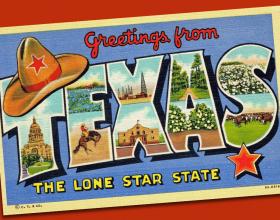Thursday, October 24, 2013
Loading
The MagazineWhat Erica Grieder has succeeded in doing with this book is what few journalists have been able to do: The Texas Monthly editor and one-time Southwest correspondent for the Economist has captured the twin realities of a state that is easy and tempting to mischaracterize. And she avoids the traps that both liberals and conservatives often fall into when evaluating a state with 26 million people, diverse and cosmopolitan cities, and Republican leadership. She also presents a case for why the rest of the nation should pay attention to this state, even if some would prefer to look away.  Liberals reflexively view Texas as a godawful hellhole of poor families, uninsured kids, and cheapskate government. Conservatives cheer on the Texas miracle of sustained economic growth without acknowledging that the state’s rapidly changing demographics require some kind of public response. These mistaken views of Texas pop up regularly, but especially during presidential campaigns. When Rick Perry ran in 2012, critics like Paul Krugman would have had you think Texas was a backwater reachable only by boat or weekly air taxis. No way would you have thought we were the second most populous state in America, with greater job growth than most every state in the country. Nor would you have understood that we are a magnet for transplants from around the country and world. The most charitable point that could be made about the critiques leveled at our governor is that you could see them coming long before Perry’s presidential campaign. Similar complaints were hurled at George W. Bush during his 2000 presidential race. On the other hand, listening to Perry simplify Texas like the cheerleader he was in college was often too much to take. It still is. My Texas roots go back to the 1850s, so I am a proud Texan; but I sometimes cringe when I hear Perry talk in almost condescending tones about Texas being a land of job-creators, low taxes, and minimal regulation. We are doing a good job with those three elements, to be sure. But he can be as reductionist about our complex, multilayered state as Krugman and his crowd. Rarely do you hear Rick Perry say much about the fact that we have an aging Anglo population and a young Hispanic one. Nor do you hear him talk much about how Republicans can apply the notions of limited government to that demographic tension, which will soon become America’s tension. If he did, our governor would be a more interesting figure. The prominence of the opposing poles of Texas-bashers and Texas-apologists is what makes Grieder’s work so refreshing. She clearly loves Texas, so she is not just some reflexive Lone Star-hater. She gets the economic advantages of a state government that functions differently from the sprawling, taxing approach of a New York or California bureaucracy. Here’s how she puts the difference:
At the same time, Grieder owns up to the limitations of our state: “If you want to talk about schools, about health care, about poverty,” she writes, “Texas is at the bottom of the pack, keeping company with its bedraggled southern neighbors.” What’s more, she notes, “The cheerleaders dismiss Texas’ inequities, its glibness, its hubris.” Our challenges start with devising a way to better prepare the Latino students who make up slightly more than half of the state’s public school population. In some parts of Texas, such as Dallas, those numbers are even greater. Almost 70 percent of students in the Dallas school district are Hispanic. Texas schools must increasingly become a place where Hispanic students learn to assimilate into the larger culture. And they will broaden the Texas identity, which is just fine. One of the exciting elements of living here is watching the state absorb a large number of immigrants from all over the world. Houston is now America’s most ethnically diverse city, according to Rice sociologist Steve Klineberg, whose analysis influences Grieder. |